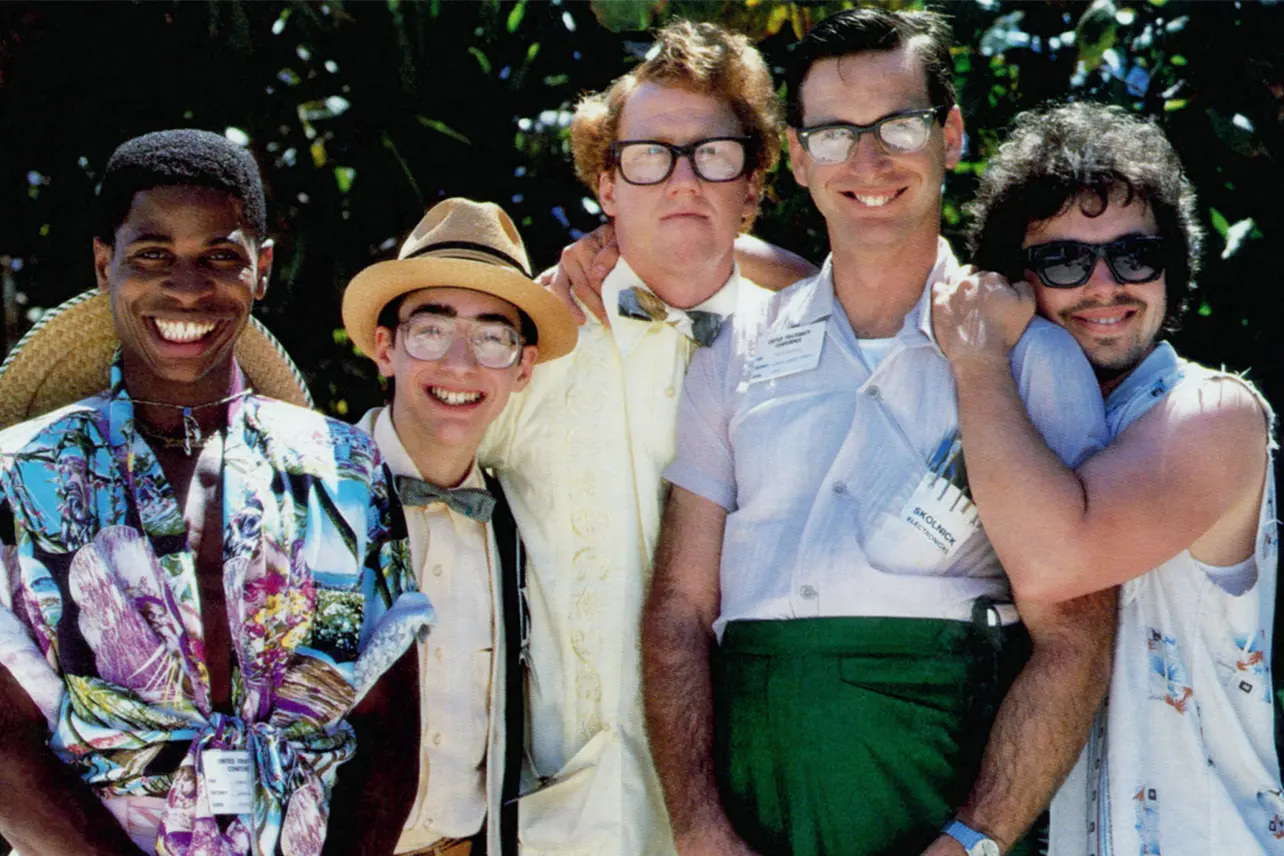January 23, 2024
Dear youth of today,
It’s OK if you don’t know what you want to do with your life. For example: When I was young, I resisted computers as long as I could.
A bit unusual for someone of my generation, I was exposed to computers and programming at a young age, enough to know programming came easily to me. But because it came easily, it was also a little boring. Also, if you’re younger than Generation X, you probably don’t remember there was a time before computers became entangled with every aspect of society and culture, a time when computers were clearly separate from “normal life.” Growing up in the 1980s, most households didn’t have computers, because why would you? They were novelty items, maybe something your parents used at work… but you talked to your friends on a landline, looked up movie times in the newspaper, discovered new music from the radio and purchased the songs you couldn’t live without from a record store, did your reading in paper books that you found in a library from searching through a card catalog. Yes, programming came easily to me; but why would I want to spend my days working on them?1
Instead, the dream of my early teenage years was to grow up and be a writer. I’d had my nose in books for many of my formative years (mostly fantasy & sci-fi), and the thought of spending my days creating worlds in my brain and then bringing them to life for others — wow, that’s still an intoxicating vision for me! (Gives me chills to this day.) When the time finally came to pick a major in college (at nineteen! we ask people to decide their future when they’re so young), I was torn between knowing I’m good at computers but wanting to write. Incapable of making a decision, I majored in both computer science and English.
I definitely grew as a reader thanks to majoring in English. My pre-college reading diet of fantasy & science fiction taught me use books for escapism and as a way to imagine what kinds of worlds we might be able to build someday. In the years I haunted the English department in Tucker Hall at William & Mary, I read, absorbed, and was influenced by so many things that hadn’t been part of my earlier reading diet: the King James Bible, Milton, Zora Neale Hurston, Gabriel García Marquez, Shakespeare, Boethius, Tolstoy, Marlowe, Edith Wharton, Walt Whitman, Adrienne Rich, Harriet Jacobs, Frederick Douglass. I learned to love how reading old books connected me to the past, and I learned to love reading books that let me touch the minds of authors of different backgrounds than mine. Being an English major taught me how to use books to make my world bigger.
However, the dream of being a writer slipped away from me in phases. While still in college, I realized I wasn’t good enough at writing fiction. I then thought I could combine computers and writing by becoming a professor (they have to write a lot, right?), so I headed to grad school in computer science at the University of Washington. While there, I still wondered: Maybe there was a niche for me as a writer who could understand technical topics well and then explain them to a mass audience? I applied for an internship at The Economist to be a science writer (didn’t get it) and read all the materials I could find about the National Association of Science Writers. The thing that first lured me away from the University of Washington was a job opportunity to be a technical writer for Microsoft.
While I earned a paycheck as a writer for a few months, that technical writing job killed my dream of being a professional writer for good. I could no longer avoid these facts: While I enjoyed writing, it was hard for me, and what I could produce wasn’t different enough from all the other writers in the world. In contrast, with the way my brain works, everything about software is easy. That technical writing job also taught me that I didn’t want to write about things that other people got to invent: I wanted to play a part in inventing the things. I switched jobs in Microsoft from being a technical writer to being a program manager… and here I am, 25 years later, still doing the computer thing.
This isn’t the path I’d planned for my life, I’m really happy with how my career has turned out. As I wrote about two weeks ago, it’s nothing short of magic. I have no regrets about my meandering path, either. The time I spent as an English major, the effort to find a science writing job, the time I spent as a writer for Microsoft: If I hadn’t spent all that time early on trying and failing, I don’t think I could have come to peace with my home in Big Tech. I would have always wondered, “what if?” Now, I still get to live a life enriched by books, and since I don’t need to write for a living, I can focus on writing for fun.
T.S. Eliot once said, “Some editors are failed writers, but so are most writers.” In that spirit, I can proudly sign off,
—A failed writer
Also, if you meet a Gen Xer who’s in the software industry, like myself, rest assured that we did not get here because society lured us with promises of riches and status. For those of us who grew up in the 80s, this is what we thought would await us if we ventured too close to the computer lab:
 ↩︎
↩︎